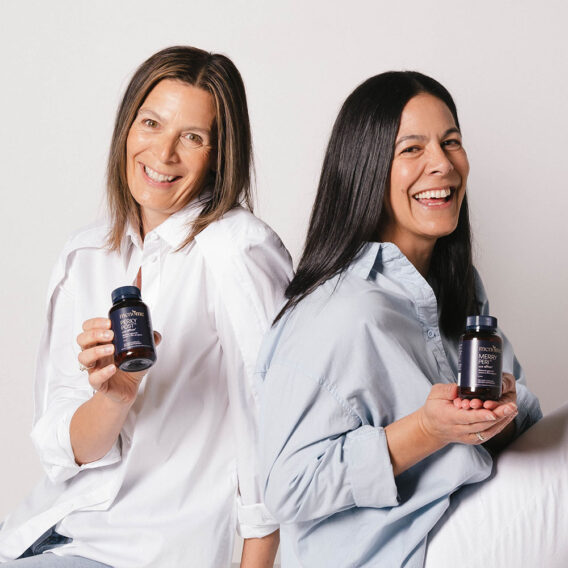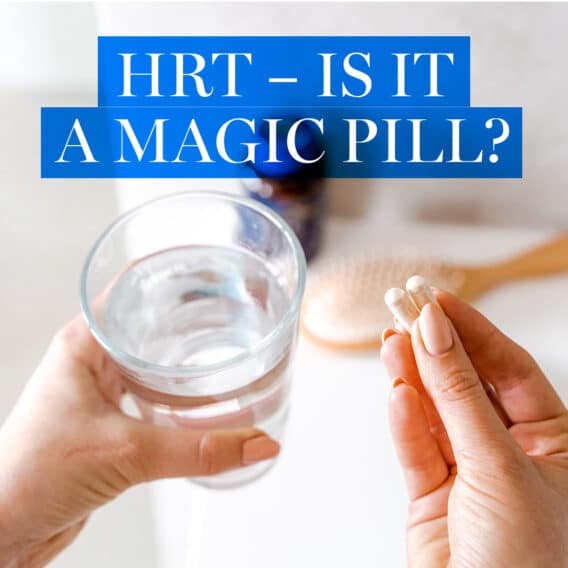
Has Your Libido Gone AWOL? 5 Tips To Get Your Sexy Back!
It’s a crying shame but many women going through menopause have come face to face with libido loss. But if that’s not something you’ve come up against, you can do

It’s a crying shame but many women going through menopause have come face to face with libido loss. But if that’s not something you’ve come up against, you can do

Heeeelllooo! 👋 You’re here, which means you’re ready to feel like you again – and we couldn’t be happier to help with our Shake It Off® 10-Day Hormone Reset. So,

Are you wondering how best to use Merry Peri® and Perky Post®? Well, stand by and let’s address a few of your most common questions. Is Merry Peri® or Perky Post® best for

Reaching peri/menopause usually means we’re growing older, it’s part of our feminine life cycle. While there are cases of premature menopause, as a rule, it means we’ve reached age 40 or

Sleep often becomes something of a holy grail once you enter perimenopause. And if you can’t find a way to navigate sleep issues it may travel with you through the

Menopause Hormone Therapy (HRT) can deliver incredible results for many women. However, the truth is, there’s no one size fits all, especially when it comes to women’s health. Ah, menopause

Who is Remifemin®? Remifemin® is a trademark of the German company Schaper & Brümmer GmbH Co. KG, and is licensed to pharmaceutical company GlaxoSmithKline for international sales. The Remifemin® product portfolio comprises

Are there menopause remedies that you can concoct in the comfort of your own home? As a matter of fact, there are quite a few. So, happy days! With this

Menopause. Well actually, it’s not quite that simple! To be correct we need to call out premenopause, perimenopause, menopause and post-menopause. It’s the end of your fertile years and every

Cheers to this icy cold Lime Mojito Mocktail. Mwah! When the heat is on the last thing you want to deal with is pesky hot flushes right?! Although they’re one

Who is Happy Mammoth? Happy Mammoth is an offshore natural health and nutraceutical company dedicated to solving complex health problems. They offer evidence-based formulas to help women regain control of

It’s the time of year that’s famous for over-indulging and leaving us with a little bit of extra holiday weight. All the result of filling our belly and imbibing lots

High fives! The holiday season is almost upon us and it’s synonymous with festive times. But the rockin’ and rollin’ aren’t always menopause-friendly. Indeed, we wish it could be all

Hey amazing woman, we’re so glad you dropped by looking for natural alternatives to HRT. Because if you’re approaching menopause and in pre-, perimenopause or post-menopause* you’re far from alone.

Someone presented me with a challenge recently to find three movies that will help you feel better about menopause. So I had to laugh as it’s not a popular subject

Menopause and dehydration is ‘thing’. Indeed, it goes hand and hand with number one on our 7 Wellness Pillars For Your Best Menopause – Hydration & Nutrition. While you may be

Hello, thanks for stopping by to our world of peri and post-menopause info. If you’ve never heard of xenoestrogens and EDCs this might by one of the most important thing

Are dizziness and nausea getting to you? We hear you! But before you jump to conclusions and wonder if there’s something seriously wrong with you, know that these can be

The doctor of the future will give no medicine but will interest his patients in the care of the human body, diet, and the cause and prevention of disease.– Thomas

Heeeeelllloooo, what do you think of the term second spring to describe menopause? Isn’t this Chinese term for menopause beautiful – your second spring? Well, we think so anyway. Indeed,

If you’re looking for natural menopause relief to ease you through menopause there’s a lot on offer. From natural supplementation like Merry Peri® and Perky Post® through to the ancient

Let’s talk about bladder issues. Yes, we’re going there! We know it’s difficult. But we also know that from perimenopause on our vagina’s begin to change and so do our

Estimated reading time: 3 minutes What’s the most transformative thing that you can do for your brain? Exercise! says neuroscientist Wendy Suzuki. Professor Suzuki notes that exercise has the ability

Summer + hot flushes. Somehow just using the words ‘hot flushes’ and ‘summer’ in the same sentence is enough to set off my own internal heatwave! And the temperature’s rising.
At MenoMe®, Menopause is our one & only game®. We live and breathe it – ’cause we’re going through it too or we’ve gone through it, and we totally get it! We’ve got your back and we promise to add a sprinkle of laughter to this rollercoaster ride!
Meno-Me Ltd
Unit 3/10 Makowhai Road,
R.D. 12, Hawera,
New Zealand.
Free call: 0508 MenoMe
Email: info@meno-me.com
Contact us here…
MenoMe®, LotsaLocks®, Merry Peri®, Perky Post®, Happy Go Tummy®, Women on Fire® , Mini Pause® and Menopause is our one & only game® are registered trademarks owned by Meno-Me Limited.
affron® is a registered trademark of Pharmactive Biotech Product, S.L.U.
keraGEN-IV® is a registered trademark of Keraplast Manufacturing.
Livaux® is a registered trademark of Anagenix IP Limited.
This is the time when menstruation is well and truly over, the ovaries have stopped producing high levels of sex hormones and for many ladies, perimenopause symptoms subside.
Estrogen has protective qualities and the diminished levels mean organs such as your brain, heart and bones become more vulnerable. It’s also a key lubricant so your lips may become drier, your joints less supple and your vagina might be drier. In addition, your thyroid, digestion, insulin, cortisol and weight may alter.
At this juncture, a woman might experience an increase in the signs of reduced estrogen but she should have a decrease of perimenopause symptoms. That said, some women will experience symptoms like hot flushes for years or even the rest of their lives.
Peri = ‘near’
Most females begin to experience the symptoms of perimenopause in their mid-forties. Your progesterone levels decline from your mid-30s but it’s generally from around 40 that the rest of your sex hormones begin to follow suit.
Perimenopause is a different experience for every woman and some women may barely notice it. The first indicators are usually changes to the monthly cycle. This means that for some ladies, this can be accompanied by things like sore breasts, mood swings, weight gain around the belly, and fatigue as time goes on.
For those with symptoms it can be a challenging time physically, mentally and emotionally.
Importantly, perimenopause lasts – on average – four to 10 years. The transition is usually a gradual process and many women enter perimenopause without realising.